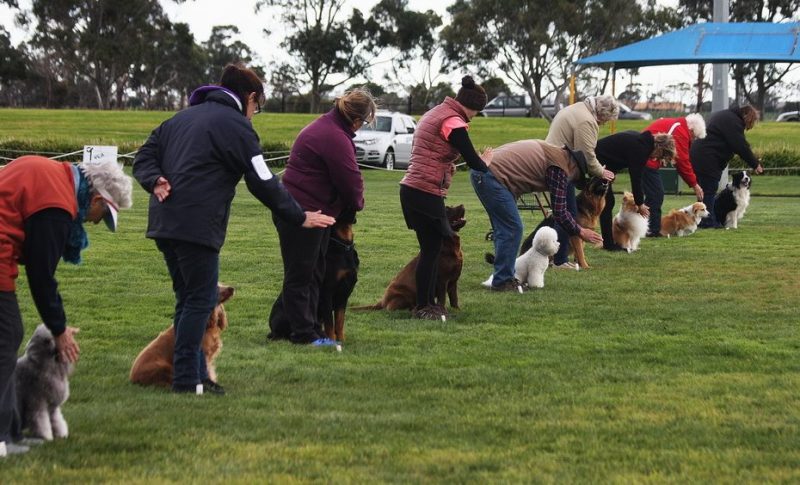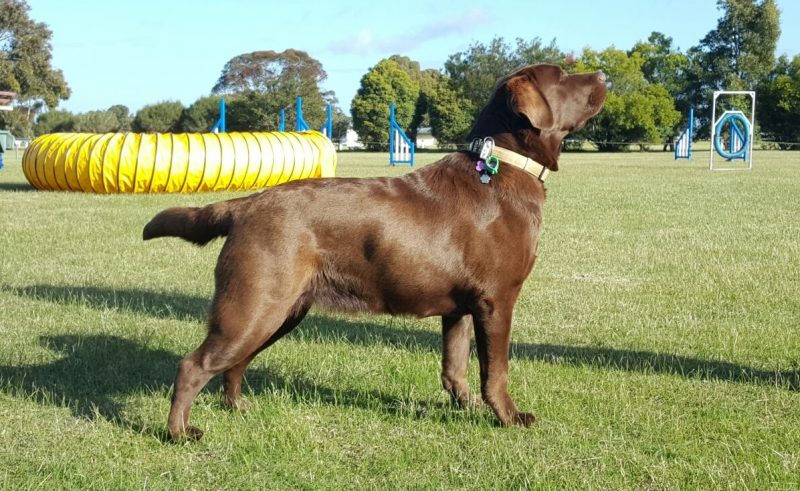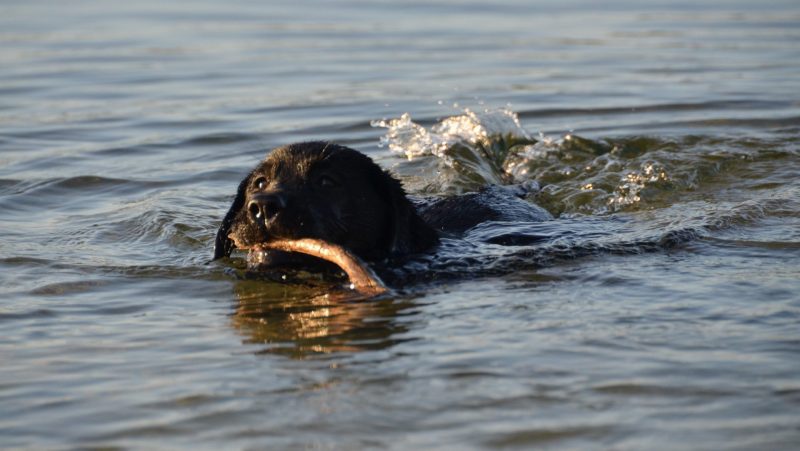It is one of the best ways to deeply bond with your dog. It’s great exercise. And it just might be one of the most personally rewarding endeavours of your life.
It’s the world of canine sports and events.
Something special happens between the owner and dog when they train for an event. As you and your dog develop the skills necessary for the sport or event – and then demonstrate that – you experience a sense of accomplishment like no other. With your dog beside you at each turn, you become a true team in every sense of the word.
Participating in canine sports is not just about gaining titles and winning trophies, although a healthy competitive spirit doesn’t hurt. Most dog owners say its about the many personal rewards that keep them coming back to the events. And often friendships with other dogs and owners developed at events are as important as the event itself.
Thousands of dog events are held every year. Whether you train just for fun, or actually compete, I guarantee that you’ll feel a sense of pride at seeing your dog in his ‘happy place’, showing his skills and accomplishing goals – together.
Dogs registered with the ANKC, on any register (limit or main), can compete in dog sports. The best way to get involved in dog sport is through a Dogs Victoria affiliated club or event group, or your local dog obedience school should be able to direct you on how to get involved.
Dog sports and events were specifically designed to strengthen and test the dog’s natural instincts or abilities for which they were bred. Many dog sports suit labradors and are highly rewarding, such as the retrieving and field events, obedience trials, endurance, and therapy dog. We generally do not recommend agility or fly-ball sports for our labradors, especially under the age of two to three years old. This is because of the risk of injury to their joints and ligaments. We explain more about this under our Care and Health section. There are many suitable dog sports though that are fun and safe for labradors!


- Field Trial: This is a competitive event at which hunting dogs compete against one another. There are field trials for retrievers, pointing dogs and flushing dogs. Field trials are usually organised by Kennel Clubs or other Gundog clubs.
- Retrieving: There are several different kinds of competitions in Retrieving including: Retrieving Ability Tests, Retrieving Trials, and Field Tests. Retrieving Trials place emphasis on a dog’s retrieving abilities across natural terrain, using more challenging ‘hunting like’ conditions such as on country properties and fields.
- Obedience Trial: Obedience training is the pre-requisite here! The dog performs commands, ranging from the simple sit, drop, come, stay (etc) through to high level competition where additional commands, accuracy and performance are judged and scored. The first level of obedience is on leash but off leash thereafter. Dogs respond reliably under the direction of the handler. Obedience is very very rewarding for handler and dog.
- Rally Obedience: Also known as Rally-O is a relatively new fun dog-sport based on traditional dog obedience but carried out in a more informal and relaxed style, with course signs set up for the dog and handler to follow. Rally-O is super fun to compete in and not that difficult to learn at all!
- Tracking: A tracking trial is an event to encourage dogs to make use of their strongest faculty, the ability to follow a scent trail. The competition emulates the finding of a lost person or article in a situation where the performance of the dog can be fairly assessed. Tracks laid are reasonably straightforward. Dogs compete in harness, on a longline.
- Track and Search: Tests are meant to be as close as possible to real life situation where a dog is meant to find a missing person in varying terrain. Tracks vary in complexity with differences in length, time delays, number of diversion and cross tracks.
- Endurance: Involves either biking or running with your dog over a distance of track on a loose two metre leash. The endurance test is over 20km split into three sections with breaks in between. You’ll need to spend a suitable amount of time to get both you and your dog fit to compete in this sport. It is not advisable that labradors under two years old compete in this sport, until they are fully mature and finished growing.
- Dances with Dogs: Is a competition sport comprising of heelwork to music and freestyle. The competitions provide handlers and their dogs the opportunity to demonstrate a skilful, choreographed routine, performed to music. It has its foundation in traditional obedience heelwork.
- Dock Diving: Is a sport in which dogs compete in jumping for distance or height from a dock into a body of water. Since labradors naturally love water, they enjoy this sport. Landing in water is generally low-impact on their joints, versus agility jumping where the dog lands on ground over jumps creating risky high impact stress on his joints.
- Dog Hiking: Refers to a form of hiking in which the dogs travel alongside their owners. Dogs love getting out and being with their owners in nature.
- Therapy Dog: Labradors are highly versatile and considered one of the best canine breeds trained as a therapy dog. They are hard-working with an extraordinary intelligence that makes them good candidates for training to become proficient in the demands of a therapy dog’s nature of work. Also known for their sociability and friendliness, their sunny disposition makes them an excellent family dog as well as therapy dog.
- Service Dog: Labradors have been trained as service dogs for people with blindness, diabetes, autism, seizures and PTSD. Service dogs are trained and placed in unique situations to improve the health and relationships of individuals and families, resulting in stronger and more successful communities. Visit the CSTDA or Assistance Dogs Australia website for more information on service dogs.
Labradors can be trained to participate in Animal Assisted Therapy Programs to visit hospitals, nursing homes, rehabilitation facilities, mental health facilities, schools, and disability learning centres. Therapy roles vary, but primarily is to enhance or enrich the experiences of patients and clients in a therapeutic way that helps bring out their best abilities and gives hope to many – many who have benefited from the friendliness and unconditional love that only a labrador can give. A lab therapy dog is trained to bring bright light inside the walls of any place visited. They provide affection, comfort, and entertainment to those who need it most.
Animal Assisted Therapy Programs engage volunteers whose dogs have been assessed and trained as therapy dogs by an accredited program or training organization. You could have the next Therapy Dog waiting to volunteer his friendship to help others. Visit the Therapy Dogs Australia or Delta Society website for more information on these programs.
Links to Rules for Conduct:
- Retrieving Trials
- Obedience Trials
- Rally Obedience
- Tracking
- Track and Search
- Endurance Test
- Dances with Dogs Competitions
Links to Clubs:
- Labrador Retriever Club of Victoria
- Retrieving Australia
- Tracking Club of Victoria
- Victorian Gundog Club
- Gippsland Retrieving Club
- Tracking Club of Victoria
- Dock Dogs Australia
- Dances with Dogs Australia

